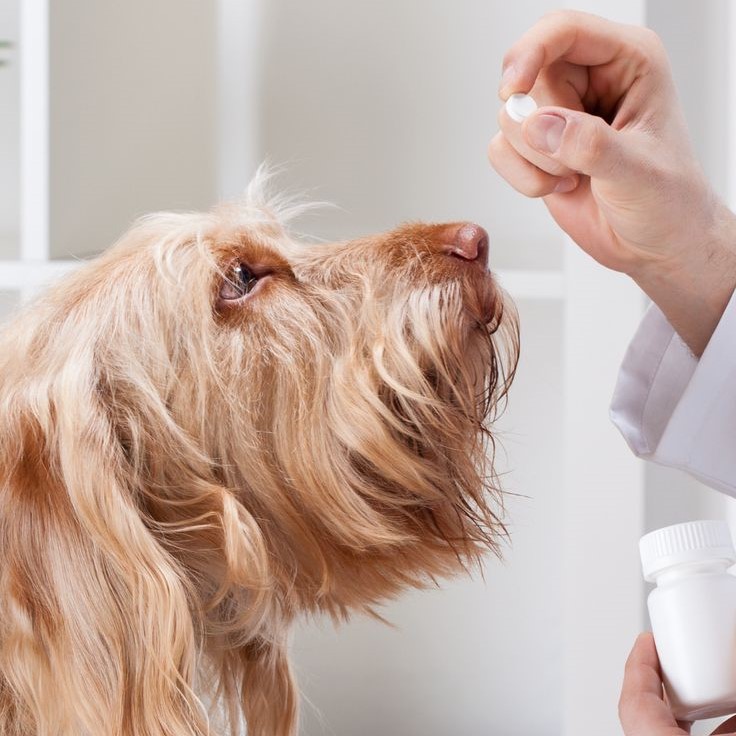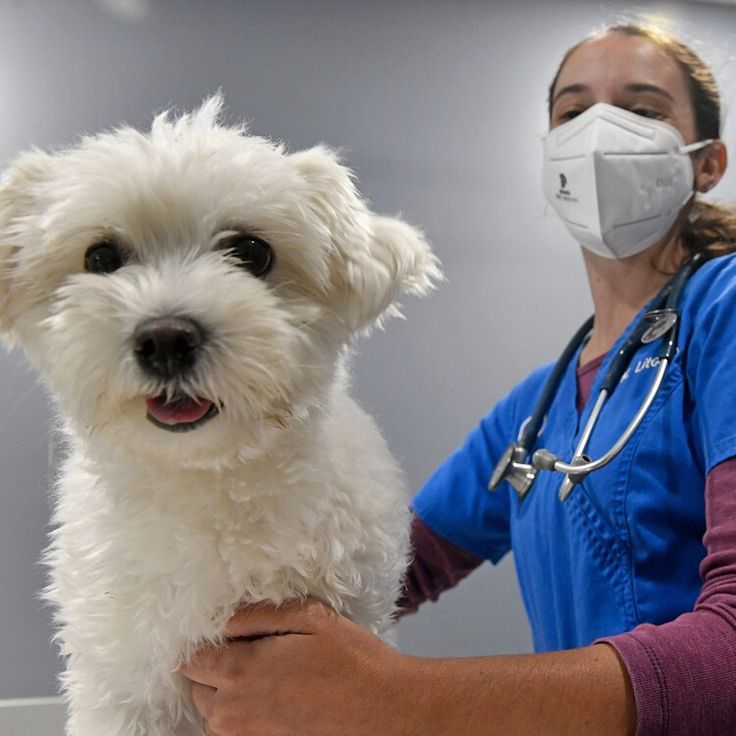What Are Pet Antibiotics?
Pet antibiotics are medications used to treat bacterial infections in animals. These drugs work by killing harmful bacteria or preventing their growth. They are specifically formulated to be safe for pets like cats, dogs, and other animals. Veterinarians prescribe antibiotics after diagnosing an infection that requires treatment.

There are different types of pet antibiotics tailored to target specific bacteria. Some common examples include amoxicillin, doxycycline, and cephalexin. These medications treat issues like skin infections, urinary tract infections, and respiratory problems. Antibiotics are not effective against viruses, so they are only prescribed for bacterial infections.
Pet antibiotics come in various forms, like pills, liquids, or topical solutions. The choice depends on the type of infection and what works best for your pet. Always follow the veterinarian’s instructions while giving antibiotics to your pet. Proper usage ensures effectiveness and prevents antibiotic resistance.
In summary, pet antibiotics are vital tools for managing bacterial infections in animals. Always seek professional advice before using any antibiotic for your pet.
Common Reasons Pets Need Antibiotics
Pets often need antibiotics to treat bacterial infections that disturb their health. These infections can occur in various parts of the body and can be mild or severe.
Skin Infections
Skin infections are a common reason for antibiotic use in pets. Scratches, bites, or allergies can lead to bacteria entering the skin. Antibiotics help eliminate the infection and promote healing.
Urinary Tract Infections
Urinary tract infections (UTIs) cause discomfort for pets. Frequent urination, pain, or blood in urine are signs of UTIs. Antibiotics are often prescribed to treat these bacterial problems.
Respiratory Infections
Respiratory infections like kennel cough are frequent in dogs and cats. Sneezing, coughing, or breathing issues may indicate an infection. Antibiotics can manage these bacterial infections in the lungs or airways.
Digestive System Issues
Pets can develop infections in their stomach or intestines from contaminated food or water. Signs include vomiting, diarrhea, or lack of appetite. Specific antibiotics can treat these problems effectively.
Wounds or Surgical Complications
If a pet gets a cut or undergoes surgery, they might need antibiotics. These drugs prevent infections in the wound or surgical site that can compromise recovery.
Ear Infections
Bacterial ear infections are common, particularly in dogs with floppy ears. Symptoms include head shaking or ear scratching. Antibiotics can help clear these infections and soothe irritation.
Understanding why pets need antibiotics and consulting a veterinarian helps ensure proper care and recovery for your animal companion.

Types of Antibiotics for Pets
There are several types of antibiotics for pets, each designed to address specific bacterial infections. Understanding these options helps ensure effective treatment and quick recovery. Here’s a breakdown of the most common types of pet antibiotics:
Broad-Spectrum Antibiotics
Broad-spectrum antibiotics target a wide range of bacteria. Examples include amoxicillin and doxycycline. These are often prescribed when the exact bacteria causing the infection is unknown. Veterinarians use these for respiratory infections, skin issues, and urinary tract infections.
Narrow-Spectrum Antibiotics
Narrow-spectrum antibiotics are effective against specific types of bacteria. Clindamycin is a common example. These are used when the exact bacterial strain has been identified. They are ideal for targeted treatments like dental infections.
Cephalosporins
Cephalosporins, such as cephalexin, treat skin infections, wound infections, and bone infections. They are popular for their safety and effectiveness in pets.
Fluoroquinolones
Fluoroquinolones, including enrofloxacin, help in treating severe infections. These include deep tissue, urinary tract, or respiratory infections. They are typically used for more stubborn bacterial infections resistant to other antibiotics.
Topical Antibiotics
Topical antibiotics come in creams, ointments, or sprays. These treat localized infections such as ear infections, wounds, or hot spots. They are directly applied to the affected area for quick relief.
Sulfa Drugs
Sulfa drugs, like sulfamethoxazole, tackle gastrointestinal infections and some respiratory issues. They are also used in treating coccidiosis and other parasitic diseases.
Veterinarians choose an antibiotic after assessing the type and severity of the infection. Always consult a vet before using any type of antibiotic. This ensures safe and effective treatment for your pet.
How to Administer Antibiotics to Your Pet
Administering antibiotics to your pet can feel challenging, but following proper methods ensures effectiveness. Here are some key steps to make the process smoother:
Follow Veterinary Instructions
Your veterinarian provides detailed guidance on dosage and timing. Stick to these instructions strictly. Incorrect dosing can reduce effectiveness or cause harm to your pet.

Choose the Right Form
Pet antibiotics come in forms like pills, liquids, or topical solutions. Select the one your vet prescribes.
- Pills or Capsules: You can hide these in treats or food for easier ingestion.
- Liquid Antibiotics: Use the provided syringe or dropper to measure accurately.
- Topical Solutions: Apply directly to the affected area after cleaning it as instructed.
Use Pill Pockets or Foods
If administering pills, conceal them in pill pockets or a small piece of food. This avoids refusal by your pet.
Hold Your Pet Steady
Gently but firmly hold your pet steady if they seem unwilling. Calm them with your voice.
Offer Praise and Rewards
After giving the medication, praise and reward your pet. This keeps the process positive.
Stick to the Schedule
Administer antibiotics at consistent times daily. This helps maintain steady levels in their body.
Monitor Your Pet
Watch for side effects like vomiting, diarrhea, or allergic reactions. Contact your vet if unusual symptoms occur.
Properly administering antibiotics helps your pet recover and reduces complications. Always consult a veterinarian if you face challenges.
Potential Side Effects
Pet antibiotics can treat infections but might cause side effects in some animals. Recognizing these effects helps in taking quick action. Always monitor your pet after starting antibiotics.
Common Side Effects
Many side effects are mild and manageable. Common ones include:
Digestive Issues
- Vomiting: After receiving antibiotics, pets can often experience nausea leading to vomiting. This may occur shortly after taking the medication or a few hours later. It’s essential to monitor how frequently your pet vomits and report this behavior to your veterinarian if it persists.
- Diarrhea: Antibiotics can disrupt the natural balance of bacteria in your pet’s gut. This disruption can result in diarrhea, which may vary in severity from mild to severe. Observing the consistency and frequency of your pet’s stool is important, as severe diarrhea can lead to dehydration.
- Loss of Appetite: Some pets may display a decrease in their desire to eat after starting antibiotics. This can be attributed to gastrointestinal discomfort caused by the medication. If loss of appetite lasts more than a day or two, it’s important to seek veterinary advice.
Allergic Reactions
- Signs of Allergy: After administering antibiotics, pets may exhibit allergic reactions that require immediate attention. Common signs include swelling, particularly around the face, ears, or paws. Owners should watch for unusual behaviors following medication administration.
- Itching and Redness: Many pets may scratch or lick excessively at their skin if they are experiencing an allergy. This can lead to redness or rash, indicating an adverse reaction. It’s essential to closely observe your pet for persistent itching or irritation.
- Emergency Symptoms: In severe cases, allergic reactions can escalate. Symptoms such as difficulty breathing, rapid swelling, or hives can be life-threatening. If any of these severe symptoms appear, it’s critical to seek emergency care immediately.
Lethargy
- Reduced Energy Levels: After taking antibiotics, pets may seem more tired than usual. Lethargy can manifest as a lack of enthusiasm for play or a noticeable decrease in their overall activity levels.
- Sleep Patterns: Some pets may sleep more than they usually do. If you notice your pet is spending excessive amounts of time resting or appears unresponsive to stimuli, it could indicate that the antibiotics are affecting their energy levels.
- Duration of Lethargy: While some tiredness can be expected after medication, if the lethargy persists for an extended period or gets worse over time, it is advisable to consult with a veterinarian to rule out any underlying issues.
Rare but Serious Side Effects
In some cases, pets can encounter more severe reactions, such as:
- Severe Allergies: Difficulty breathing or collapse needs immediate veterinary attention.
- Liver or Kidney Impact: Rarely, long-term use may impact organ health.
- Antibiotic Resistance: Incorrect use can lead to bacteria no longer responding to antibiotics.
Preventing Side Effects
To minimize risks, follow these tips:
- Give with Food: If advised, give antibiotics with meals to reduce digestive upset.
- Stick to Prescriptions: Only give the recommended dose and duration by the vet.
- Report Unusual Symptoms: Inform the vet immediately if your pet shows side effects.
Understanding potential side effects ensures prompt action and keeps your pet safe. Always follow veterinary directions carefully.
The Importance of Finishing Prescribed Antibiotics
Finishing the full course of prescribed pet antibiotics is essential for your pet’s health. Stopping antibiotics early can lead to incomplete treatment and recurring infections. This happens because the bacterial infection may not have been fully eliminated.
Prevent Antibiotic Resistance
Incomplete antibiotic use can promote antibiotic resistance. Bacteria can adapt and become harder to treat in the future. Resistant strains pose serious threats, making treatment more complex.
Ensure Complete Recovery
By finishing the medication, the infection is fully cleared from your pet’s system. This prevents relapses or worsening of the condition.
Follow Veterinary Instructions
Veterinarians prescribe specific dosages and durations for antibiotics. Following these ensures effective treatment for your pet.
Watch for Side Effects but Continue
Some mild side effects may occur during antibiotic use. Unless severe, continue the medication and inform your veterinarian.
Proper use of pet antibiotics contributes to your pet’s full recovery and long-term health stability.
Natural Alternatives
Natural remedies can complement or substitute antibiotics for treating mild infections in pets. They are often safer and have fewer side effects. However, always consult a veterinarian before using alternative treatments.
Probiotics
Probiotics support gut health and boost the immune system. They can help fight infections naturally.
Herbal Remedies
Certain herbs like oregano, garlic, and echinacea have antibacterial properties. These may aid in treating minor infections.
Manuka Honey
Manuka honey is effective for wound care. Its antibacterial properties can promote faster healing.
Coconut Oil
Coconut oil can fight infections and improve skin health. Apply it topically for minor wounds.
Apple Cider Vinegar
Diluted apple cider vinegar helps with skin infections and ear problems. Use carefully and sparingly.
Essential Oils
Tea tree oil and lavender oil combat bacteria and soothe irritation. Ensure proper dilution before use.
Healthy Diet
A balanced diet strengthens your pet’s immune system, reducing the risk of bacterial infections.
Natural alternatives may help in mild cases. For severe conditions, antibiotics prescribed by a veterinarian are essential.
When to Consult a Veterinarian About Antibiotics
Knowing when to consult a veterinarian about pet antibiotics ensures your pet gets proper care. Antibiotics are powerful drugs that require expert advice. Here’s when you should seek veterinary guidance:
For New Symptoms or Signs of Infection
If your pet shows symptoms like fever, vomiting, or unusual behavior, contact a vet. Early consultation prevents infections from worsening.
After an Injury or Surgery
Open wounds, bites, or post-surgical recovery can lead to infections. A vet will determine if antibiotics are needed.
For Recurring Infections
Pets with repeated infections may need further evaluation. A veterinarian can recommend the right course of action.
When Symptoms Persist After Antibiotics
If your pet’s condition doesn’t improve after antibiotic use, consult the vet. The infection may require a different treatment.
Before Using Natural Remedies
Natural alternatives to antibiotics should be approved by your veterinarian. They’ll ensure safety and effectiveness.
For Dosage and Instructions
Always confirm dosage, duration, and form of antibiotics with a vet. Correct use ensures proper recovery.
When Side Effects Occur
Contact your vet immediately if your pet experiences severe vomiting, diarrhea, or allergic reactions. Early action is crucial.
Veterinarians assess your pet’s condition and provide the best treatment. Their guidance ensures that antibiotics are used safely and effectively.
Conclusion: The Importance of Responsible Use
In conclusion, pet antibiotics play a vital role in treating infections in pets. However, responsible use is essential to ensure the health and safety of our furry friends. By understanding the types of antibiotics, their mechanisms of action, and potential side effects, pet owners can make informed decisions. Additionally, adopting preventative measures can significantly enhance the well-being of pets while reducing the need for antibiotics. Always seek veterinary advice for any health concerns regarding your pets. By taking these steps, you engage in responsible pet ownership, ultimately leading to happier, healthier lives for your beloved companions.











